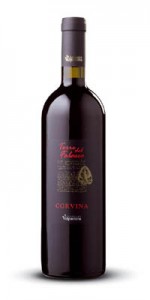 Confusion over Corvina
Confusion over Corvina
Corvina just doesn’t sound like a wine grape. Walk into a grocery store and the only “corvina” you’ll be finding will be over in the fishy-smelling section where your local fishmonger will instantly know it’s a Chilean Sea Bass you’re looking for (what was called, in another era, the Patagonian Toothfish – understandably, they changed it). Walk into a Portuguese restaurant and ask for the “corvina” and your waitress (possibly named “Corvina”) will instantly bring you Corvina on a platter. Just don’t ask for a bottle of Corvina – everyone will be very confused.
Veneto, Land of Ancient Wines and Feuds
Only in an Italian restaurant that specializes in food from Veneto, the northeastern part of Italy, will your order of “a Bottle of Corvina” bring smiles and appreciative hand gestures. In Veneto (and not many other places even in Italy), people cherish the Corvina and make all kinds of magic with it in wines. This is a region with a long history of wine-making dating back to the Romans (one of its valleys literally means “Valley of Many Cellars”) but most people know it as the site of Verona – home to Romeo & Juliet, the Montagues and the Capulets, Mercutio and Benvolio, the Nurse and the Friar, (the Corvina and the Rondinella?).
Famous Amarone
Veneto is one of the early adopters of the “straw wine” process, although not the first, and the Venetians have been winning crazy praise for the last 50 years with their big Amarone dessert wine. Amarone, despite its noodle-sounding name, is probably the most famous dessert wine from Italy, and Corvina features as its largest grape contributor in that final, raisin-y blend.
Detail Up!
Corvina 2009 “Torre del Falasco” by Valpantena Winery in Veneto, Italy (h/t for the image)
Taste
Really dark red color, fruity (i thought blackberry but others said cherry) with medium body with a little licorice finish and medium-strength tannins.
Google Randoms:
* Valpolicella, an affordable ($12-18) wine also from Veneto, counts Corvina among its majority shareholders (often in the 70% range)
* Corvina performs best in volcanic soil that resists the cold well – thinking there are parts out west in the US where this could work post-volcanic wonders
* Corvinione, once thought to be Corvina until scientists discovered that they’re actually two separate grapes, wasn’t discovered until 1993. Kinda exciting.